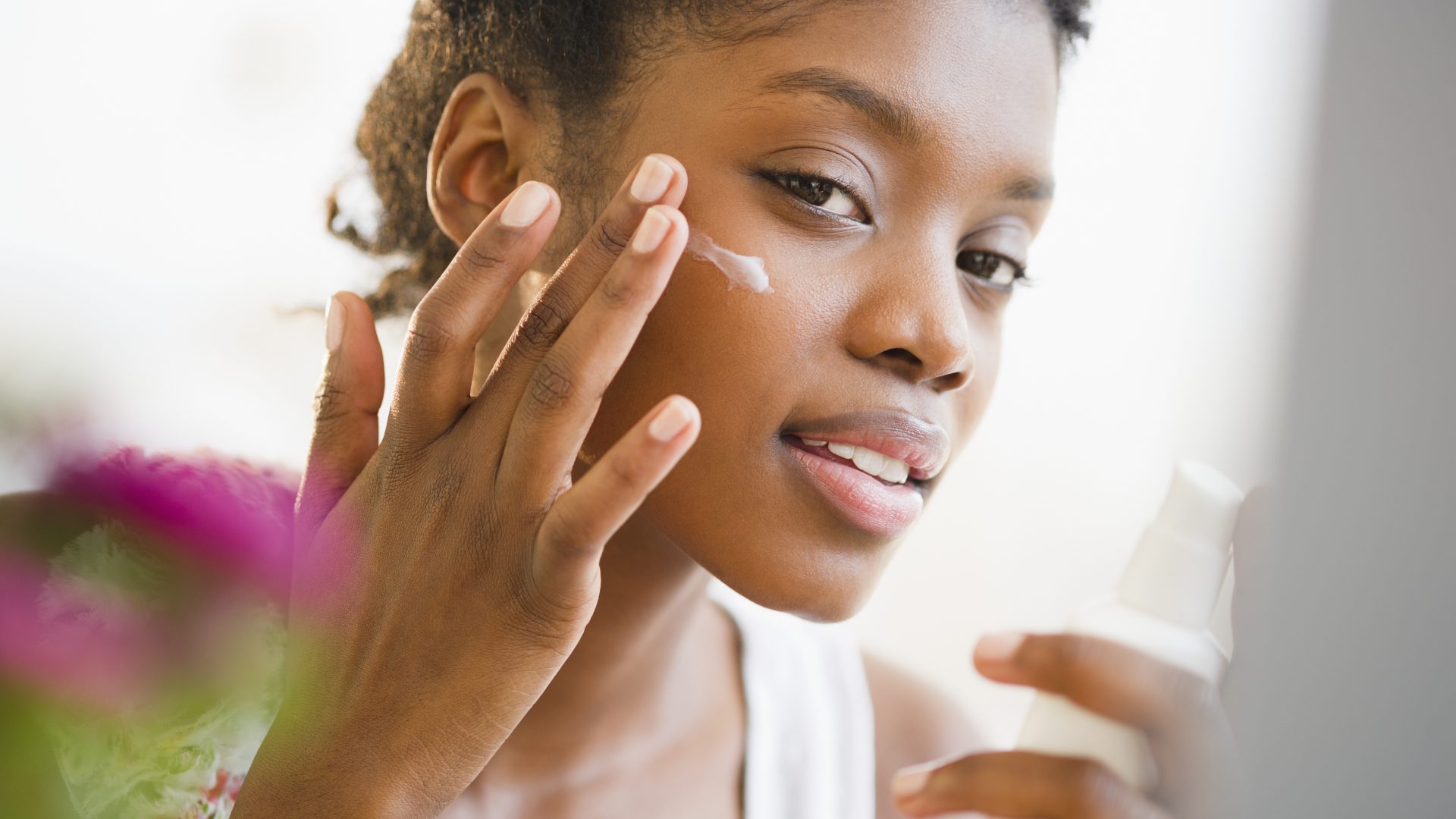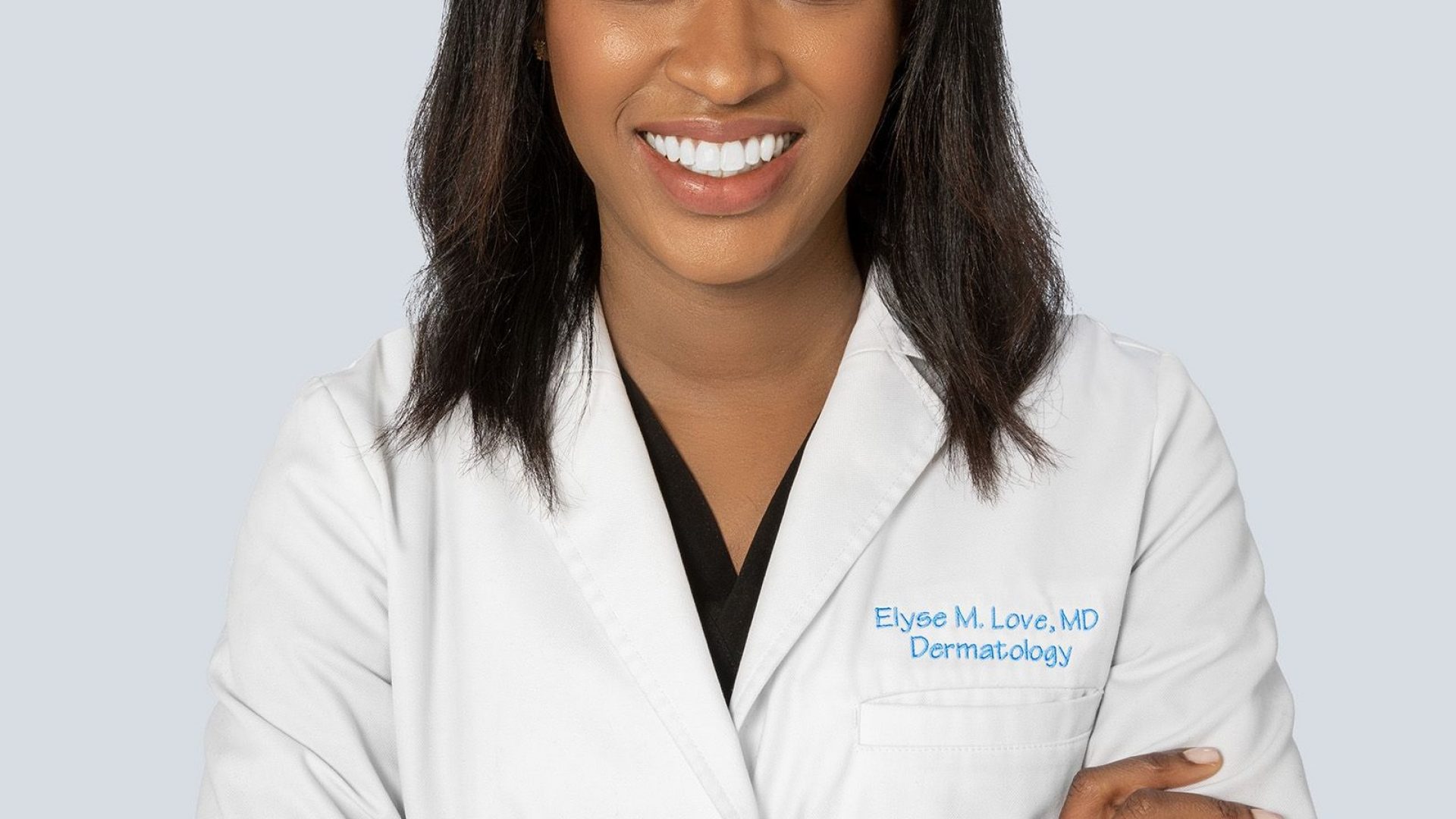
You’d be lying if you said that your skincare routine hasn’t been thrown for a loop since COVID-19 hit. That’s right, we’re talking to you! Whether it be maskne (acne caused by wearing masks often or wearing the same masks) or dull skin from lack of Vitamin D and quarantining inside, our skin has definitely been suffering in more ways than none. It feels like we’ve just got a handle on our skincare routine during the brutal winter months by managing our hydration levels and making sure that we don’t leave room on our beautiful melanated faces for any pimples that may spring on us.
Speaking of spring, skincare for spring seasons is a whole new ball game than the winter. Switching to lighter cleansers, using water-based serums, and tossing out old makeup products and brushes may be a no-brainer for some, but we tapped someone in the field to share her wealth of expertise with ESSENCE Girls United readers.
47% of dermatologists express that their medical training didn’t prepare them to treat Black skin, while only 3% of practicing dermatologists identified as Black and 4.2% identified as Latinx, according to the New York Times. We want to better equip you with the knowledge you need as young Black women and women of color to live your best clear, healthy skin life!

Dr. Elyse Love is a board-certified dermatologist trained in the wide spectrum of medical and cosmetic dermatology and has a specific interest in the quality of life impact of dermatologic conditions and methods to modernize dermatology visits. Dr. Love has contributed to Byrdie.com and offered her expertise to Shape, Into the Gloss, POPSUGAR, Women’s Health Magazine and the Bridging Beauty and Wellness Conference.
On behalf of Vaseline’s Equitable Care For All Campaign in partnership with HUED, Dr. Love was part of a larger consumer discussion around bringing equity to healthcare for Black and brown people.
“Transitioning into spring is a lot more fun than transitioning into winter because, in the winter, the skin cannot handle as many products or active ingredients,” Dr. Love told ESSENCE. “As we enter into the spring, especially after 2020, we all feel like we need to get last year off of our face.”
She continued to explain that in comparison to our white counterparts, Black folks’ skin is more prone to hyperpigmentation, meaning that if we already have acne or a dark spot and we step into the sun, our marks can increase in intensity and lead to post-inflammatory hyperpigmentation. Dr. Love said, “In the spring, we should always be really diligent about sun protection and adding something into the routine that’s going to even out the skin tone.”
Below, Dr. Love shares her advice on transitioning your skincare routine from one season to the next as the sun begins to come out and we prepare to hit the streets again – safely, of course!
Protect Your Skin Barrier
“We want to exfoliate a little more and bring that glow back. That’s when we can start increasing or adding in more exfoliating ingredients if you hadn’t already done so during the winter.”
Glycolic Acid Is Your Friend
“The most popular ingredients are glycolic acid and retinol, which I am a huge fan of. The reason why I love these ingredients is that they provide a gentle exfoliation to the skin. As we get into our mid-20’s, our skin doesn’t exfoliate as naturally as well as it used to. That allows your moisturizers to penetrate the skin and get that glow. Additionally, it evens out the skin tone. My favorite retinol is by Obagi Clinical.”
SPF Is A Must
“We know that with melanin-rich skin, we’re always fighting hyperpigmentation and dark spots, and that becomes more of an active challenge as we get into sunnier weather. Having something on board to help regulate pigment production; not lighten the skin, but keep the skin just within the normal-even skin tones. We know that the number one cause of aging is sun exposure, but pigmentation is also a huge problem for our skin type. SPF helps hyperpigmentation fade while preventing hyperpigmentation.”
Add Antioxidants
“I think we saw this during 2020 when there was less traffic, fewer people around, and things were quieter. There’s more data coming out on the effects of pollution on our skin in causing aging and pigmentation. Having an antioxidant on board as we’re about to start spending more time outside will be important.”
Avoid Irritating Products
“Anything that’s irritating can also cause hyperpigmentation because irritation is a type of inflammation. It’s really important for our skin type that as we add in exfoliating ingredients that we don’t do it all at the same time and we don’t go overboard. If you add too many exfoliating ingredients at the same time or it’s too harsh, you can make the problem worse.”
Normal Skin Looking For Glow?
“I love an exfoliating cleanser. My favorite exfoliating cleanser is by Murad. They make a glycolic acid exfoliating cleanser that I think is great to start the day with. They’re really great, especially in the mornings, for helping your makeup products to go on evenly and giving you a glow to start the day.”
“Start the day with an exfoliating cleanser, following up with an antioxidant serum and finishing with a lightweight moisturizer and a dedicated SPF in the springtime – unless you still have dry skin from the winter and you need something heavier and nourishing. My favorite SPF is by ISDIN, their tinted sunscreen. There’s a lot of data coming out that how visible light can also worsen hyperpigmentation so this sunscreen protects against sunscreen and visible light like our phone screens and computer screens.”
Got Naturally Oily Skin?
“People with naturally oily skin are just going to naturally tolerate exfoliating ingredients a little bit easier. You still want to start 2-3 times a week and slowly increase that into the routine, but those with naturally oily skin will naturally tolerate those. I’m a little bit on the controversial side when it comes to the debate about people with naturally oily skin need a moisturizer. If you do your routine and your skin feels normal, especially because most people are using hydrating serums, I don’t think you 100% need moisturizer. If you do your routine and the goal is to normalize your skin, you may need a moisturizer because of all the active ingredients you’ve had in your routine.
For people with oily skin, spring can be a very frustrating time especially in places where it’s warmer. When adding any type of exfoliating ingredient like glycolic acid, retinol or vitamin C, add it into your routine one at a time and very slowly. Sandwich those products in between more gentle products like a hyaluronic acid and a moisturizer.
Dr. Love’s Skincare Secret?
“I love prescription retinoids. They’re the gold standard for achieving a glowing complexion. Obviously, not everyone has easy access to a dermatologist but there are some excellent over-the-counter alternatives.”
To find and book an appointment with a board-certified dermatologist near you, please visit www.huedco.com/vaseline and to see how Vaseline is working towards equity in skincare please visit: www.vaseline.com.